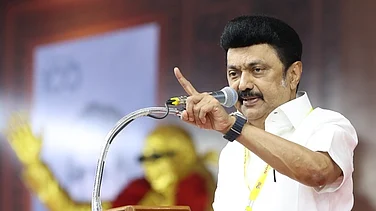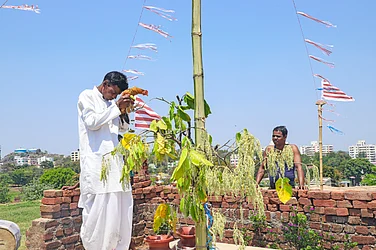During the 102nd edition of his monthly radio programme 'Mann Ki Baat,' Prime Minister Narendra Modi once again remained silent over the escalating violence in Manipur. Opposition leaders criticized the Prime Minister for not speaking out about the ongoing strife during the episode. Jairam Ramesh, Congress general secretary in charge of communications, highlighted the need for the Prime Minister to address the "entirely man-made" humanitarian disaster plaguing Manipur instead of focusing solely on India's disaster management capabilities. Ramesh questioned the Prime Minister's commitment to Manipur and raised concerns about the non-auditable PM-CARES Fund, as reported by Hindustan Times.
Violence has recently intensified in strife-torn Manipur, with mobs resorting to destructive acts such as torching houses belonging to Union ministers and BJP leaders. In the Wangkhei, Porompat, and Thangapat areas, a mob clashed with Rapid Action Force (RAF) personnel, disrupting traffic flow by burning tires, logs, and waste in the streets. This conflict arose from clashes between the Meitei community, the majority group, and the tribal Kuki community following proposed changes to the state's reservation matrix that granted scheduled tribe (ST) status to the former. Tragically, the violence has already claimed the lives of 115 people and left over 300 injured.
Prime Minister Modi's remarks during 'Mann Ki Baat' highlighted India's increasing capability to handle natural disasters, expressing confidence in the swift recovery of the people of Kutch from the recent devastation caused by cyclone Biparjoy. He also reflected on the dark period of the Emergency in Indian history, emphasizing the atrocities committed against democracy supporters. Recognizing India as the mother of democracy, he reaffirmed the nation's commitment to upholding democratic values and the supreme authority of the Constitution. As such, he stressed the significance of not forgetting the date when the Emergency was imposed, June 25.






















